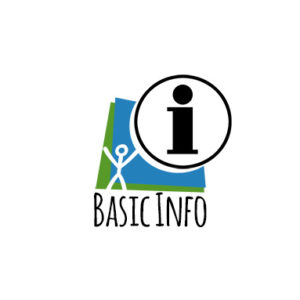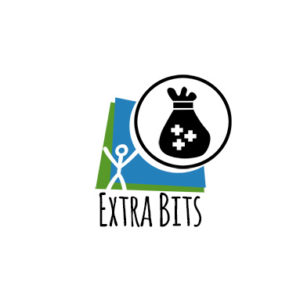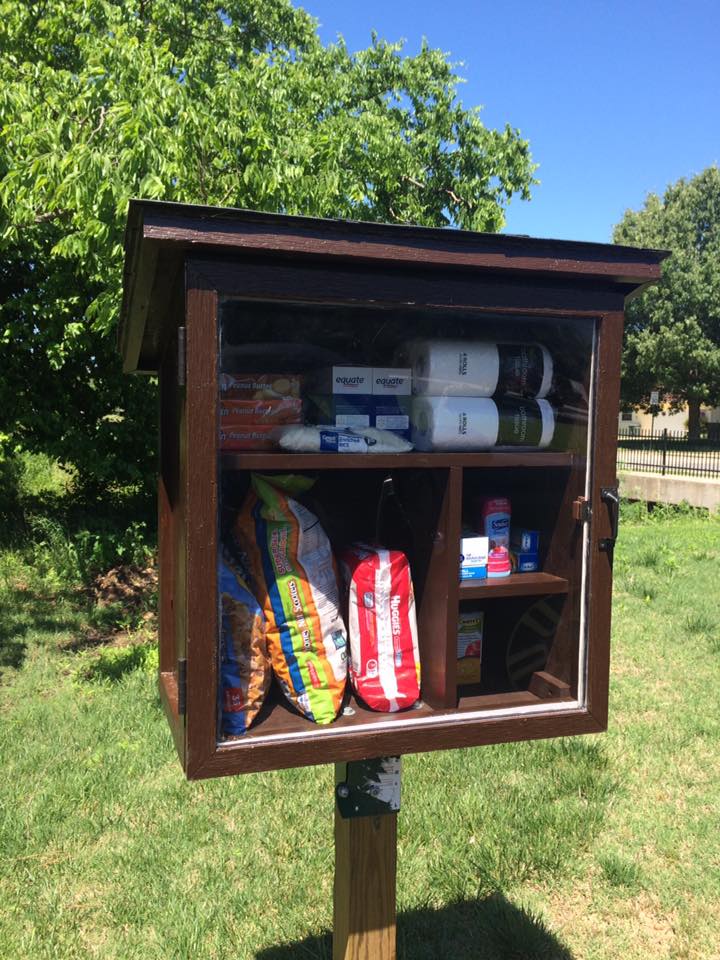
 Job Title:
Job Title:
Clinical Nurse Manager (CNM 2)
One Sentence To Describe Work Role:
I manage a group of nursers in a clinical area, to provide holistic care for people with disabilities.
Number Of Years Dedicated To This Field Of Work or Lifestyle:
40
Category Of Work:
Employment – Paid Work
Country / Area of Work:
Ireland
Industry:
Healthcare
Type:
Employment
 Key Skills For The Job:
Key Skills For The Job:
Patience, because the work can be very repetitive and you may have to do it ten times, to get it right for the person. You need to have understanding of the needs of the person. Education to realise why someone presents with the level of disability. Knowledge about what is so called ‘normal’ abilities are, to be able to understand people who don’t have the same abilities.
I have to have knowledge around many different clinical, psychological, neurological, communication and social skills. What we are looking at for the person we are providing support for, is the social, emotional, intellectual, physical and holistic needs of a person.
You have to not only know when they are unwell, but how to communicate with somebody, you need to follow the support staff (or multidisciplinary team we call them). An example of this could be a neurologist if someone has epilepsy, a dietitian if someone has feeding difficulties, speech and language therapists if someone cannot swallow.
Vital Key Skill:
They have to be caring and considerate because if not, they won’t respect the person they are working with. If they haven’t got respect, then they’re never going to get anywhere because you learn a lot of your skills by the way you respect the person you are looking after.
Your Personal Experience Of Entering This Role:
I applied and was accepted, education wasn’t as relevant for me. These days you need so many points of education to become a nurse.
I have reached a level of expertise now, that I don’t wish to advance further.
There is another level higher than a CNM2, which is a CNM3 but I chose not to be, because they are changing the CNM3 to be a Person In Charge PIC. The PIC means you are responsible for everything to do with the person which is really no different to what I am doing, because the Health Service Executive HSE will not give me total control over finance or staffing. HSE is similar to the NHS in the UK in terms of its function.
Tips For Undertaking This Work:
See Additional Insight section below.
Future Progression Or Developments:
Care Assistant who is a non-trained nurse, qualified Staff Nurse, CNM1, CNM2, CNM3, Assistant Director, Director, other levels above the Director. The CNM3 and Assistant Director are on the same level.
For a younger me, I would say you need more education. When I started out it was a certificate and a diploma. Now you need a degree. If you are starting off you have to be willing to be constantly educating yourself. At the moment a degree will get you in and it will train you, but it probably isn’t enough as you need to be open to many training course. They are now setting a target that every year you need so many credits. Which means that one type of training may be say 5 credits, but every year you need the minimum of 30 credits.
What Are The ‘Tools Of the Trade’ Used Daily:
Your hands…It’s very hands on. Because I am a manager, I spend a lot of the day on the computer. I also need to know how to use medical equipment, i.e. blood pressure cuff, thermometer, syringe, taking blood, etc. Also mental skills to analyse test reports. The general skills of being a nurse.
A good understanding of the communication we get from the disciplines that support us. For example the psychiatrists discussing certain types of psychotropic drugs and having to understand the compatibility of drugs, if not I need to have the confidence to say to someone, I don’t know what that means, can you tell me why you are putting someone on this medication and how does it react with another type of medication.
This is a tool that isn’t always there with newly qualified staff who are very often intimidated by a consultant or registrar. After 40 years, this doesn’t phase me at all, a doctor may say we are putting someone on this medication, I may say I don’t agree when they say someone needs something.
A Typical Day’s Duties:
An example of a typical day, of when I go in for 8:00 am. I would go in and meet with the night staff who are going off duty at 8:15 am, I get the night report and I review whether all the staff were on duty or not.
If you are missing some staff, you need to start contacting agencies or staff who are not on shift to see if there is anyone willing to make up the gap in the rota.
I may have fasting bloods to do, so I need make sure I have my phlebotomy box and I go to whatever unit I need to go to. I make sure I have sufficient staff to support a patient who doesn’t understand what I am going to do. Ensure the staff on duty are following the safe swallowing guidelines that we have for people, because not everyone can swallow/ eat like we can.
There may be training during the day. So I have to make sure I have sufficient staff to attend various training. I need to meet with my manager, we now have Health Information Quality Assurance (HIQA) Group who come to all the HSE services. They will come and assess us and give us action plans. So every day I need to review the action plans.
Recently HIQA told us we need to up-skill into the area of fire compliance, so I have to make sure I have training records for all staff under me, check whether they have attended training in the last year and If not, I need to contact the fire officer and arrange training. Assess if staff have done other mandatory training such as manual handling, Studio 3 for challenging behaviour break away techniques, hand hygiene, breakaway techniques, etc.
The biggest part of my day is doing the rota. To ensure I have 5 staff on in a particular unit every day 7 days a week and that they work 39 hours a week. I need to adjust the shifts to accommodate this if needed. I may need to split a shift and bring another staff in to complete the second half, if someone would have gone over their weekly hours.
Is Travelling A Regularly Part Of This Work:
Localised travel yes, community based, there are 16 houses in the community. Most houses are within 10km radius and there are a couple that were a bit further out.
Some house you may not see every day as they are high dependency or if you could contact them by phone. For example if I have a senior staff in a house I wouldn’t need to go to it because the senior staff would report to me every day. But several high dependency units, you would see every day to make sure staff are skilled, maintaining their skills and providing a safe living environment.
Weekly Working Hours:
Full Time
Type Of Hours Arrangement:
Hours By Rota / Roster – Changes Monthly. 39 hrs a week. One weekend a month. If something occurs on the weekend and there is an emergency, you are automatically required to stay on duty, it’s an unwritten thing.
The Best Thing About The Work You Do:
The way the service users respond to you. Totally out of the blue you somebody will do something you just don’t expect, it is just amazing.
It can be something as simple as smiling, or giving you something that you never expected them to actually be able to do. Someone to pick a spoon up and just take one spoon of food. One lady I am particularly fond of, she is at end of life with dementia. When I go in to visit her she lifts her thumb up and gives me a thumbs up, and that’s her sign for good. We have a thing called Language Alternative for Mentally Handicap (LAMH ) a communications system. We taught people signs when they couldn’t speak, this lady still recognises me and she gives me the thumbs up. The pleasure this give me, to think she still remembers me, she can’t say it but she can give me the thumbs up
Your Least Favorite Thing About The Work You Do:
Having to deal with bosses. The higher up the HSE you go, they just don’t get a feel for what’s going on ‘on the ground floor’. They have become so distance or remote from the needs of the people we are looking after, the see it as a business.
They have so much money to cover the whole country, but its very hard to say to someone, sorry you cannot go somewhere, as we don’t have the staff, money or the transport. I try to say to people, just imagine if you were saying this to your child, I am sorry you can’t go there, I don’t have someone to take you, we don’t have the money or bus to take you.
As I mentioned HIQA have inspections, and now it’s a national regulation that you meet the HIQA recommendations to maintain the service you are running. You go to HSE and you tell them how compliant you are, if you are not compliant you get less funding. You can get stuck ‘in the middle’ you cannot meet targets without the funding, but cannot get the funding as you are not meeting targets.
Any Duties You Hadn’t Anticipated Prior To Undertaking The Work:
I suppose on a daily basis the HSE keep expanding the role. They send out new policies, new regulations.
Training to be a nurse, I didn’t anticipate ever being in a management situation. Years ago there were Matrons, the Matrons ran the hospitals. When the Matrons disappeared, managers developed. Due to experience, education and skills you had, you would become a manager (they would hold interviews). These roles became more office based. I do prefer the role to be more hands on.

 The Top Perks Of The Work:
The Top Perks Of The Work:
Same as ‘What Is The Best Thing About The Work You Do?’ above.
I would also say, going in, looking forward to the reactions of people when you go in in the morning.
Other Work In The Same Sector:
Many careers within The Health Information and Quality Authority (HIQA) and HSE.
Other health professions in the different fields such as mental health, neurologist, dietitian, speech and language therapist.
Care Assistant (non-trained nurse, qualified Staff Nurse, CNM1, CNM2, CNM3, Assistant Director, Director.
What Professional Organisations Are Associated With Your Work:
Where I work is affiliated with the local university so we have a lot of training going on.
Students come in their 1st year and spend two weeks with us. The 2nd year they spend a lot of time in outside placements. In the 4th year they spend 10 months with us. We have to make sure we are affiliated to the university that is training them.
There are lots of training courses, so we must meet their guidelines, we need to make sure we are working on a degree program, and are familiar with all they are taught, they have a list of competences. Its done by working with NMBI (Nursing and Midwifery Board of Ireland). The students learn the theory at the university and then students come to us, to assess them. We are the support system to get students through this part of the training (preceptorship training).
We need to know how to put action learning plans in place and how work with students who are not meeting their competencies. To be able to tell someone who isn’t performing well to say look, I have shown you this process 3 times, you don’t seem to be understanding how to achieve this. So then we bring back in a coordinator, who is a link person between the university and us. So this training body is associated with the students.
We are also affiliated with the local technical college who have non nursing staff who must meet a certain level before they can come and work with somebody. So again you meet with their coordinators, so you would have NMBI, the nursing boards, Fetac level 5 division the organisation that work with the I.T for the care assistants.
We work with the group who come in and support the organisation, to meet the national regulations they are called Q.I.D (Quality Improvement Division). There are many other organisations that have to work together, hand-in-hand to achieve the outcomes, to ensure the organisation will train people to a standard to meet national regulations.
 Additional Info You Wish To Share:
Additional Info You Wish To Share:
I would always recommend my job, however the only thing that I wouldn’t recommend to people is the way (possibly due to the recession) that the health service isn’t putting enough resources for any part of it, be it a general hospital, mental health services, pediatric services, etc. I feel there should be more resources going into it.
The nurses in Ireland are probably the best in the world. They are educated to degree level in every faculty of nursing, and yet they are going to countries that are only diploma level, they are getting all the skills. It is terrible to see them leaving.
Additional Our World Of Work Entries That May Be Of Interest
– PROPOSED BY OWOW TEAM:
(Based on healthcare, working in a role giving care & support)




